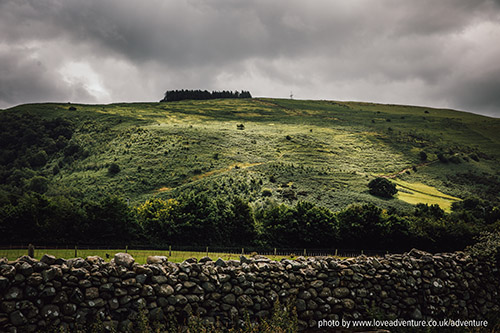Emerging spaces for natural woodland growth in Britain’s crowded future landscapes
INTERVIEW RESEARCH IS BEING CONDUCTED – if you are a land manager in the Carneddau I would like to speak to you, please contact me via theresa.bodner@bangor.ac.uk.
 Britain wants to increase its native woodland cover in the coming decades for various reasons, but compared to the 20th century, today’s planting rates are historically low. This is why my work looks at alternative ways of woodland growth and whether (and how) they may help shape the sustainable land use of Britain’s future.
Britain wants to increase its native woodland cover in the coming decades for various reasons, but compared to the 20th century, today’s planting rates are historically low. This is why my work looks at alternative ways of woodland growth and whether (and how) they may help shape the sustainable land use of Britain’s future.
The Carneddau is a very interesting landscape in this, representing a diverse mix of land covers and land uses. My current research focuses on understanding the role of natural regeneration of trees in the Carneddau, and its relevance for the future of sustainable land use.
The perspective of local land managers who know how the land has changed, and how it is changing or may change in the future is critical for this research. I’m hoping to speak to approximately 30 land managers in total, to capture a diverse set of perspectives and opinions.
If you take part, you will participate in an interview of approximately 45 min to 1 hr about your management approach, decisions and perception of land changes in the Carneddau, any relevant thoughts related to this and to natural regeneration of trees in the area. Your data (a transcript of the interview) will be anonymised and stored securely, in accordance with data protection regulations.
Interviews will often take place outdoors on your land, or publicly accessible land in the Carneddau you deem interesting to visit.
If you are a land manager in the Carneddau and would like to participate, please contact me via theresa.bodner@bangor.ac.uk or on twitter @TheresaBodner. Also, feel free to forward this information if you know anybody who might want to participate.
This project is funded by the Sir William Roberts Centre for Sustainable Land Use, with my supervisors being Dr Norman Dandy, and Dr Sophie Wynne-Jones.
